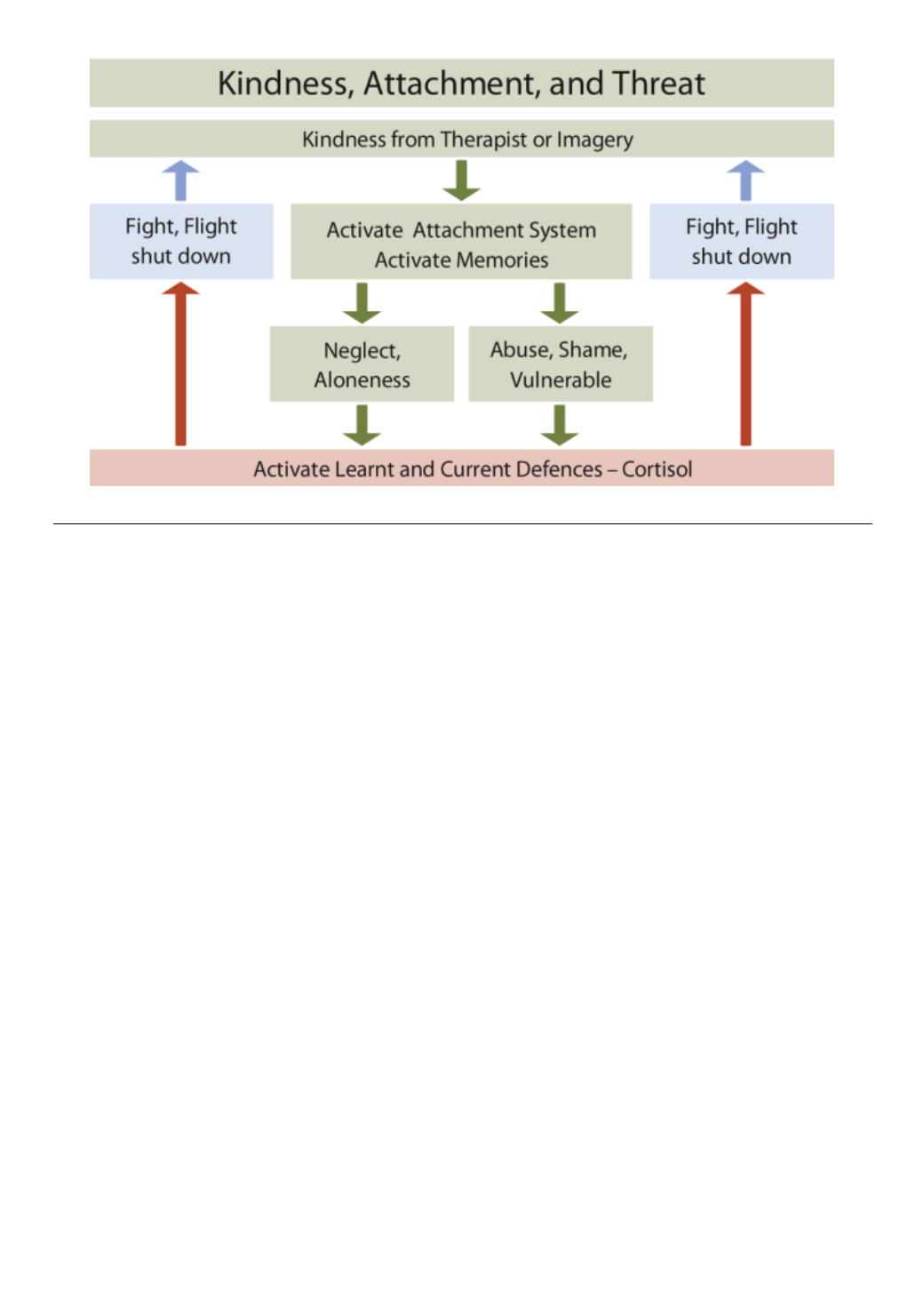
Ways kindness and compassion can relate to threat and avoidance.
This is what can happen with the attachment-affiliative system if there has been trauma associated
with attachment figures. This is why sometimes patients can actually respond quite negatively to
the compassionate behaviors of a therapist because, unbeknownst to the therapist, in subtly
stimulating the feelings of closeness and being cared for, he/she is also stimulating trauma
memories. For some years now we have used a very simple model to outline this – given above.
Fear of Closeness and Emotional Memory
A difficulty with compassion is that it’s a relational process not an individual one. So, first we need
to be attentive to our experience and accept what it means to be held with love, affection and
compassion in the minds of others. Ideally, this begins from the first days of life, from the mother’s
love, and becomes internalized. But for some, this doesn’t quite happen that way. For some
people, closeness to others is frightening, either because of genetic sensitivities and/or because
(say as a child) they actually receive rather little attention and more threat than affection. One of
the toxic combinations in early life is the parent who is wanted as a source of calming and love, but
who is experienced as unpredictable, dismissive, potentially aggressive and shaming, or is too
busy to be there “so becomes the wanted but absent other”. These children are confronted with a
terrible dilemma. In trying to draw close to the parents for love and affection, they will also activate
fears of aggression, being shamed or left alone. Others may recall that when they were in distress,
their parents rather dismissed them, or told them they were being childish or even became angry
with them. These individuals have learned to be very wary of feelings of closeness and
connectedness, especially feelings of sadness and yearning for connection, because it’s at these
times they feel most vulnerable to getting hurt – to being shamed, rejected or abandoned. For
other children, the parents were directive and intrusive, low on praise and high on criticism. These
children came to fear closeness because closeness brings scrutiny and scrutiny brings criticism
and shame. We can call this shame from intrusion – if people get too close, they can find out things
about you and then be critical, rejecting or hostile.
So we now have two problems. The first is that entering into the experience of receiving
compassion can activate a yearning and the grieving for connectedness that touch our deep innate
72


